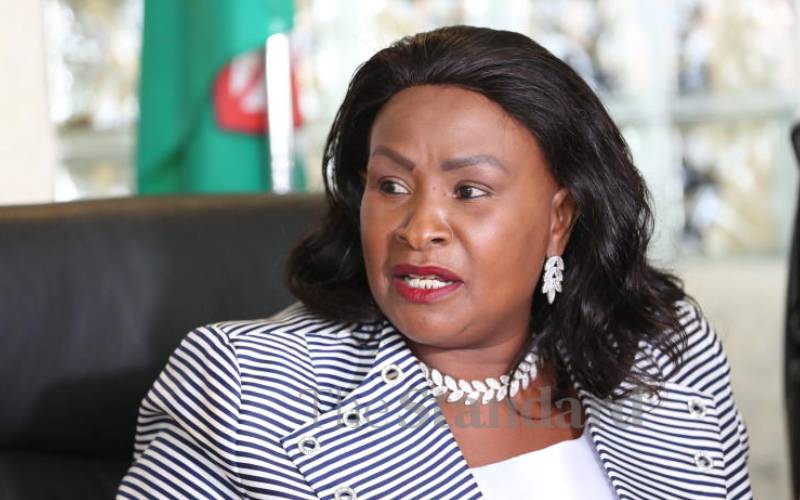×
The Standard e-Paper
Join Thousands Daily

Former Transport Chief Administrative Secretary Wavinya Ndeti is facing an epic battle in her third attempt to clinch the elusive Machakos governor’s seat.
The former Kathiani MP faces opposition from United Democratic Alliance (UDA) chairman Johnstone Muthama and Chama Cha Uzalendo’s Nzioka Waita.